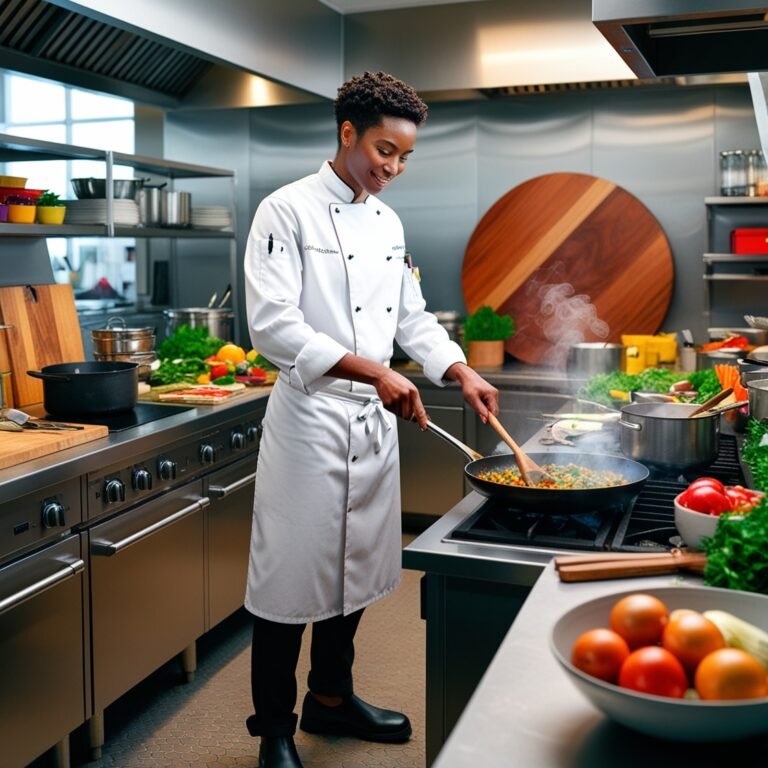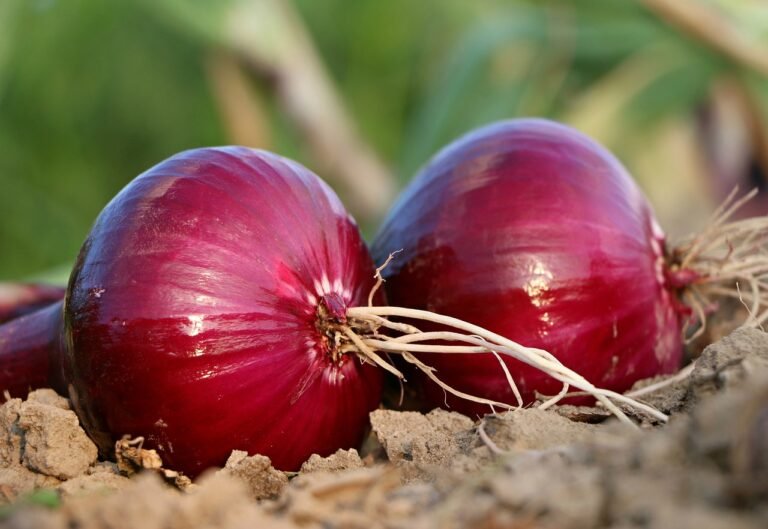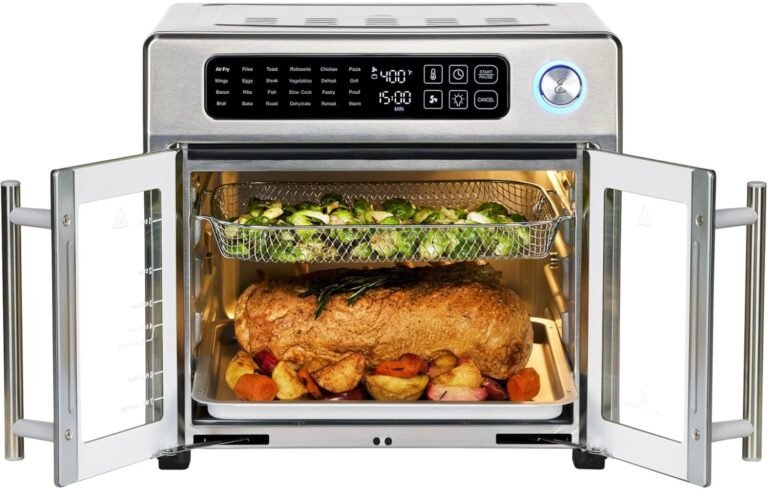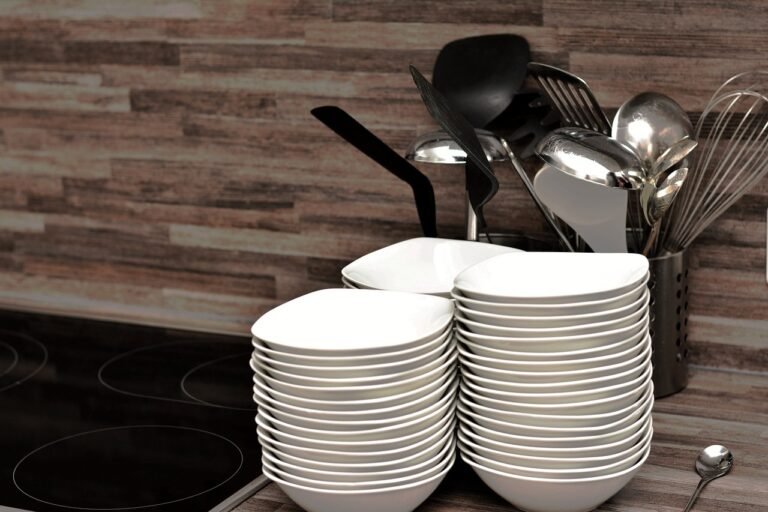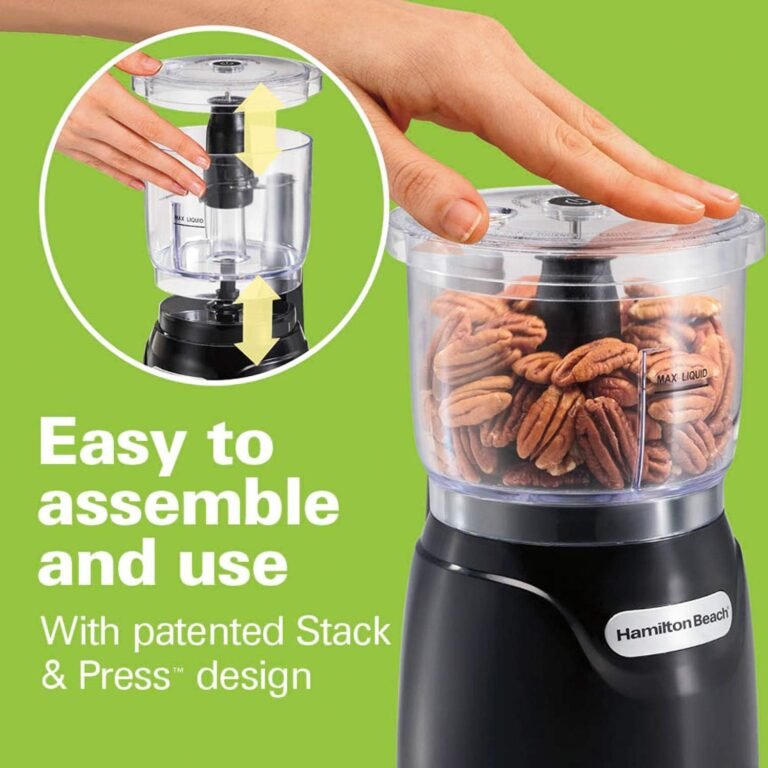How to Build Confidence as a Beginner Cook.
Importance of Trust in Cooking
Trust plays a pivotal role in the culinary journey of any beginner cook. It is essential not only in one’s perception of individual cooking abilities but also in the overall cooking experience. Developing confidence in the kitchen can significantly alter how a novice approaches meal preparation, transitions into cooking, and ultimately enjoys the results. For beginner cooks, building this trust is often a gradual process that can be influenced by their experiences with various dishes, kitchen tools, and ingredients.
Psychologically, the act of cooking can evoke feelings of fear and self-doubt, particularly when entering an unfamiliar domain. Many beginner cooks grapple with the anxiety of making mistakes or producing unsatisfactory outcomes. However, as trust develops, these psychological barriers begin to diminish. A trusting mindset fosters experimentation, encouraging novice cooks to discover new recipes, flavors, and techniques without the overwhelming fear of failure. This openness is instrumental in growing one’s culinary skills and creativity.
The trust placed in kitchen utensils and ingredients is equally vital. Understanding the reliability of appliances, such as ovens and stovetops, and the freshness of ingredients allows cooks to navigate their culinary landscape with more assurance. Feeling confident that their tools and ingredients will perform well can inspire beginner cooks to take bolder steps in their cooking endeavors. By investing in quality tools and familiarizing themselves with reliable ingredients, novice cooks can significantly enhance their trust in both the cooking process and their burgeoning skills.
Ultimately, trust is foundational not only in the cook but also in the cooking environment itself. By nurturing this essential element, beginner cooks can cultivate a more enjoyable, less intimidating culinary experience, leading to greater satisfaction and continued growth in their cooking journey.
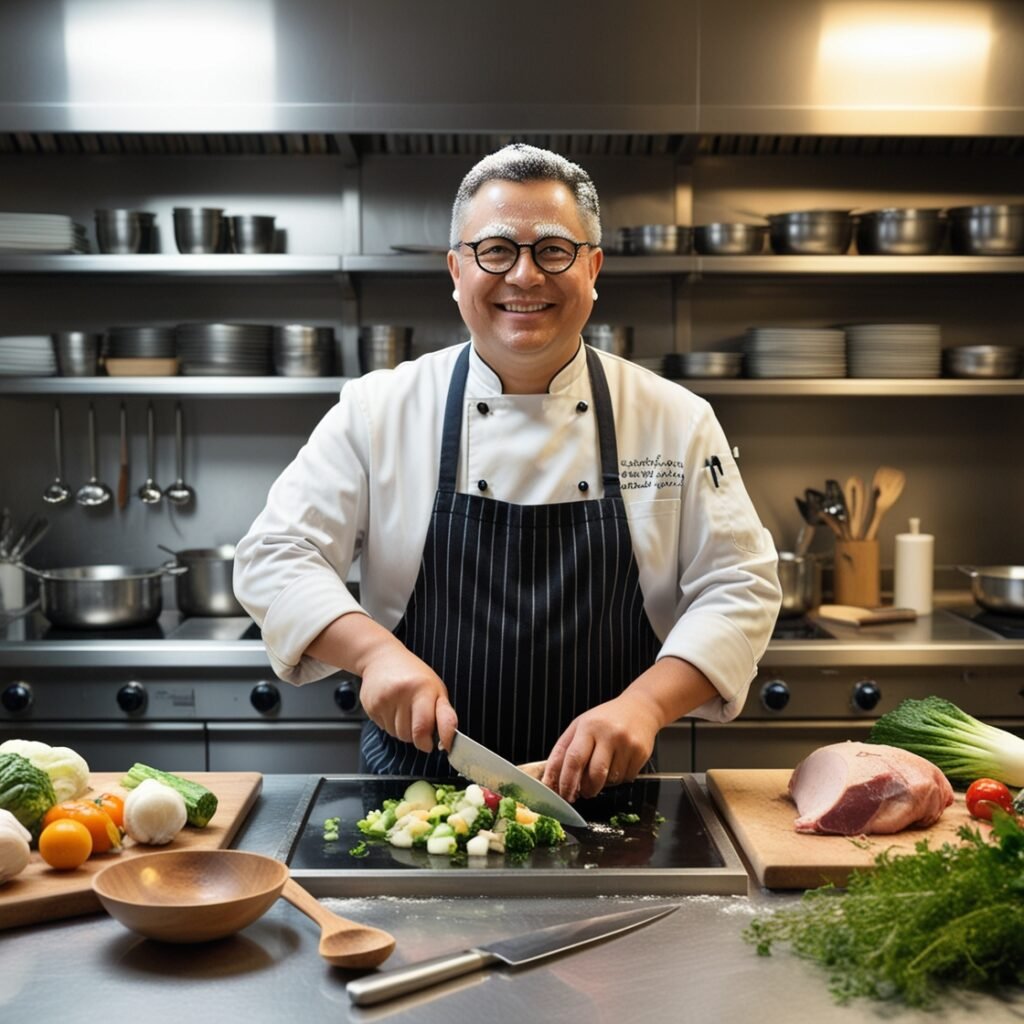
Essential Cooking Skills to Build Confidence
For beginner cooks seeking to build confidence in the kitchen, mastering a few fundamental cooking skills is vital. One of the first areas to focus on is knife techniques. A sharp, high-quality knife is essential for slicing, dicing, and chopping, allowing for efficient ingredient preparation. It is advisable to practice proper grip and cutting techniques, such as the claw grip for safe handling, which helps to prevent accidents and enhances precision.
In addition to mastering knife skills, familiarizing oneself with basic cooking methods is crucial. Sautéing, for instance, involves cooking food quickly in a small amount of fat over relatively high heat, a technique that enhances flavors while achieving the desired texture. Roasting is another essential method, perfect for achieving caramelization in vegetables and developing depth of flavor in meats. Boiling is one of the simplest cooking methods and is necessary for preparing pasta and vegetables. These techniques can be practiced with various ingredients, allowing beginner cooks to explore the nuances of cooking.
Understanding flavors is also an important aspect of developing culinary skills. Beginner cooks should learn to balance saltiness, sweetness, acidity, and bitterness to create harmonious dishes. Experimenting with herbs and spices is a great way to enhance flavors without relying solely on salt. Incorporating fresh ingredients and practicing seasoning techniques will go a long way in elevating meals.
To support the development of these skills, beginner-friendly kitchen tools are recommended. A versatile chef’s knife, a sturdy cutting board, and a few essential pieces of cookware, such as skillets and saucepans, provide a solid foundation. Investing in these tools can lead to increased confidence and a more enjoyable cooking experience.
Choosing the Right Utensils and Ingredients to Enhance Trust
The significance of selecting quality kitchen utensils and ingredients cannot be overstated, especially for beginner cooks looking to build their culinary confidence. Using the right tools can simplify the cooking process and result in better dishes, making it a pivotal aspect of developing cooking skills.
When it comes to essential kitchen tools, it is advisable for novice chefs to invest in user-friendly items that cater to their level of expertise. A reliable non-stick pan, for instance, can make cooking and cleaning much more manageable, reducing the anxiety that often accompanies cooking meat or delicate items like eggs. Measuring cups and spoons are also vital utensils, ensuring accuracy in recipes which can lead to consistent results. Mixing bowls in various sizes are beneficial for preparation, allowing for easy combining of ingredients without the clutter. Additionally, a good knife set is crucial; a sharp, quality chef’s knife can enhance safety while limiting the time it takes to prepare meals.
CLICK HERE TO BUY THE BEST UTENSILS.
Furthermore, the quality of ingredients plays a significant role in the cooking experience. Using fresh and high-quality materials not only enhances flavor but also contributes to a cook’s enjoyment in the kitchen. It is advisable for beginner cooks to source local and seasonal produce, as this often guarantees optimal freshness and supports sustainable farming practices. The selection of ingredients should correspond with the cook’s comfort level; simpler, high-quality items will grant them the freedom to explore culinary creativity without feeling overwhelmed.
In conclusion, choosing the right utensils and premium ingredients is instrumental for beginner cooks in building trust and confidence in their culinary journey. By equipping themselves with suitable tools and fresh ingredients, they can foster a rewarding cooking experience that encourages experimentation and facilitates skill development.
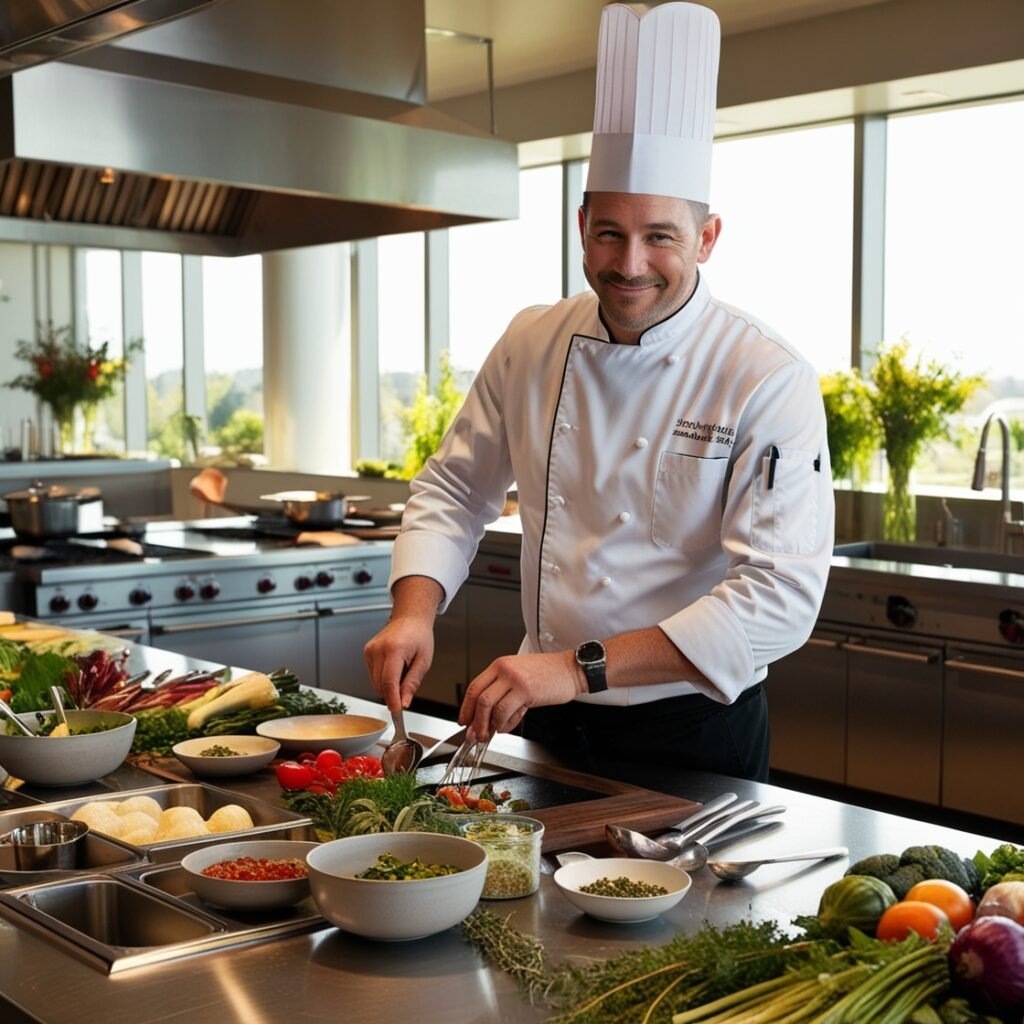
Creating a Supportive Cooking Environment
Establishing a supportive cooking environment is paramount for beginner cooks aiming to enhance their culinary confidence. A well-organized kitchen can significantly influence the cooking experience, allowing individuals to focus on learning rather than navigating a chaotic space. To cultivate such an environment, it is advisable to organize utensils and ingredients systematically. For instance, grouping similar items together and labeling containers can reduce the time spent searching for tools, which in turn minimizes frustration. An inviting workspace, with ample room to maneuver and operate, is equally important. Ensuring that your cooking area is bright and comfortable further contributes to a positive atmosphere that encourages experimentation.
Minimizing distractions while cooking is crucial, especially for beginners. This can be achieved by turning off televisions, silencing phones, and informing others in the household about your cooking time. By doing so, you create a mental space that fosters learning and helps to develop trust in your skills. The focus should be on the task at hand, allowing for a mindful cooking experience that cultivates intuition and confidence in culinary abilities.
Engagement with friends, family, or even online cooking communities plays a vital role in building a supportive environment. Seeking constructive feedback from those around you or sharing your culinary adventures can be incredibly reassuring. Demonstrating openness to learning from others creates an atmosphere where beginner cooks feel encouraged to express themselves. Exploring platforms such as cooking forums or social media can connect individuals with a broader community that shares similar interests and goals. This interaction not only enhances skill development but reinforces the sense of trust in their culinary journey.


